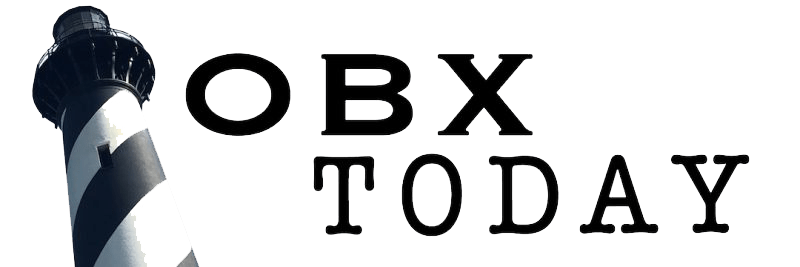
As the Outer Banks Hotline transitions to new management, its board of directors, managers and employees has begun a new tradition of recognizing the dedication and hard work of all our volunteers. Our volunteers are such a valuable part of our organization and we want them to know how much we appreciate their time and talents.
The October 2021 Hotline Volunteer of the Month is Celie Florence, one of our dedicated crisis line volunteers. Celie was nominated by her manager.
Celie gave us a little of her background:
“Most of my life I have spent time doing volunteer work. I have worked with dolphins and Wounded Warriors and with my two therapy dogs, Johnny and Andy. When I moved to the Outer Banks, I needed to continue volunteering so I joined Hotline. I’m so glad I did! The work we do is so important. A little about me…I was born and raised in Richmond, Virginia. I moved to the Outer Banks in 2007. My life has always been filled with my love of the outdoors, my horses and my dogs. And, of course, my son!”
Celie personifies the kindness and generosity of the volunteer spirit!
If you are interested in what being a crisis line volunteer entails, the following information may help or you are welcome to call us for more detail.
Crisis line volunteers take shifts each week. Some choose a specific day each week (Celie chooses each Wednesday) and others fill in where they can. Volunteers are able to fill shifts that vary in length according to their schedules. Some volunteers take 4 or 8-hour shifts, while others will take an overnight shift at 10 hours.
The purpose of a crisis line volunteer is to answer Hotline’s crisis line during non-business hours. Volunteers actively listen to the callers and provide support or resources as needed.
Some callers to the crisis line need immediate assistance, such as emergency shelter, hospital response, or law enforcement presence, and in this case, crisis line volunteers will forward the call to the on-call staff person.
In the event that a crisis caller does not need immediate action, the crisis line volunteer will safety plan with the caller, explain about Hotline services, offer referrals to other helping agencies in the community, or simply just be a non-judgmental listener, if that is what the caller is seeking.
The crisis line is also a gateway for community partners, such as law enforcement, to reach staff on-call as needed when responding to a crisis situation.
Each crisis line volunteer receives crisis line training at the onset of their volunteering. Each volunteer also receives a crisis line manual that is updated at least yearly and is useful when receiving calls to the line.
The manual contains contact information for local resources as well as information on a variety of topics that a volunteer may receive calls about on the line, such as domestic violence, sexual assault, mental health, homelessness, financial concerns, parenting concern, substance abuse, local counselors, etc.
Outer Banks Hotline‘s mission is to promote a safe and compassionate community. We are a private, non-profit human services organization that provides crisis intervention, safe house, information and referrals, advocacy, and prevention education services to residents of and visitors to the Outer Banks.
Working together, Hotline’s well-trained volunteers and dedicated staff provide the community with years of crisis intervention experience in the areas of domestic violence and sexual assault response, prevention education, support groups, and community outreach.
Programs and services are added and refined over time as needs are identified, and include:
- A variety of support groups to empower and educate survivors of domestic violence and sexual abuse, groups to address the issues of men who abuse their partners, and programs for children who are affected by violence and abuse in their families.
- Training and education for allied professionals, such as law enforcement, social workers, health care workers, childcare providers, teachers, and other interested groups. These trainings raise community awareness of the many aspects of personal and domestic crises.
- Outreach in the community and the schools through community leadership in providing resources for anti-bullying prevention, parent education, services for at-risk youth, emergency assistance for individuals in crisis, and deliberate participation in community events and task forces addressing issues of compassion and safety.
- A 24-hour crisis line (252-473-3366) connects a distressed caller to a volunteer trained to listen and make referrals. Topics include suicide, family problems, depression, substance abuse, domestic violence, and sexual assault.
- A comprehensive domestic violence program that includes a safe house, advocacy, support, and referral for victims and their children.
- A sexual assault response program that provides the assault victim with a trained advocate at the hospital, during interactions with law enforcement, and in court proceedings. Referrals for counseling options are also offered to the victim and family members.
